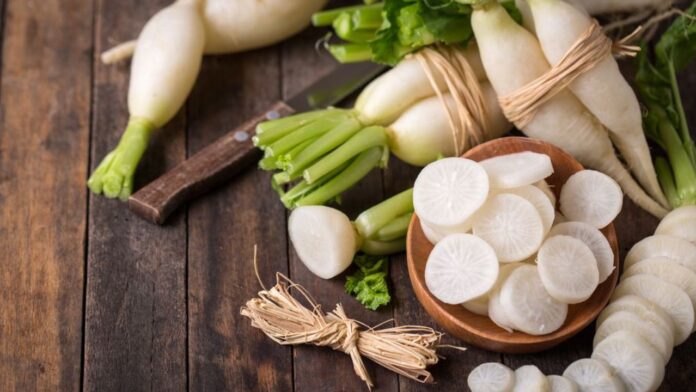Radish, or mooli, is abundant during the winter season and stands out among superfoods with its remarkable nutritional profile, offering a sweet, spicy, and pungent flavor. This versatile vegetable can be transformed into various savory dishes, including paratha, sabzi, bhurji, cutlets, soups, and salads. According to Ayurveda, mooli is considered ushna or hot, making it an ideal choice for consumption in the winter.
Here are the health benefits of radish in winter:
- Rich in Vitamin C: Radishes are a rich source of Vitamin C, supporting the immune system during the winter months.
- High Fiber Content: With both soluble and insoluble fiber, radish aids digestion, preventing common winter digestive issues.
- Potassium for Heart Health: The potassium content in radishes supports heart health, which is crucial during the winter season.
- Antioxidants Combat Oxidative Stress: Radishes contain antioxidants that combat oxidative stress, helping protect the body from winter-related illnesses.
- Warming Properties: Radishes have warming properties, promoting circulation and warmth in the body during colder temperatures.
- Folate for Mental Health: The presence of folate in radishes is beneficial for mental health, which can be vital during the winter blues.
- Low in Calories and Fat: Being low in calories and fat, radishes make for a healthy snack option, supporting winter weight maintenance.
Incorporating radishes into your winter diet not only adds flavor to your meals but also provides a range of health benefits, making it a valuable addition to winter weight loss plans and overall well-being.

 हिंदी
हिंदी






